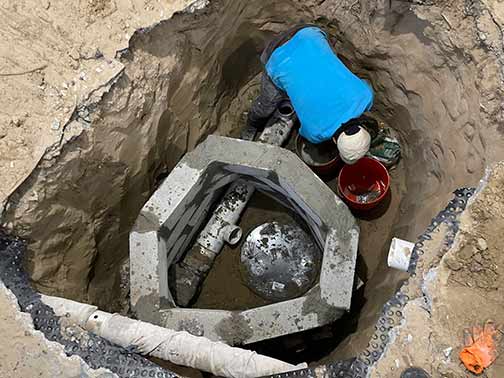
Flooding due to extreme weather events is the number one natural disaster that homes in the USA are exposed to. It used to be a problem for homeowners in flood-prone areas of the country, but climate change has transformed this issue into every homeowner’s nightmare. If it rains in your location, your home is also exposed to the risk of flooding.
To mitigate this risk, Domain Property Management, one of the expert property management companies in Chicago, advises homeowners to install flood control systems on their property. Flood control refers to measures and mechanisms designed to prevent flooding or reduce its impact. Flood control systems protect people, property and the environment. If your home is at risk of flooding, you need a flood control system. Flood control refers to measures and mechanisms designed to prevent flooding or reduce its impact. Flood control systems protect people, property and the environment. If your home is at risk of flooding, you need a flood control system.
- An effective flood control system means peace of mind; it relieves you of the constant fear that your home will be flooded without notice.
- A flood control system ensures the safety of everyone who lives in your home.
- A flood control system protects your home from water damage, so you never have to worry about the impact flooding may have on the value of your home.
What do you need to know when installing a residential flood control system in your home?
What to consider before installing a residential flood control system on your property
Map potential flood sources
You must identify the things around your home that increase the risk of flooding. The home may be exposed to a higher risk of flooding because of the presence of low-lying areas in or around the property. It could also be because of nearby water bodies or the property could be near a natural flood channel. Identifying potential flood sources is vital.
Access your level of flood-exposure
After identifying the potential flood sources on your property, you want to know the level of your home’s exposure. What is the average volume of floodwater that enters the property? Is the problem limited to the outdoor areas? Do you have a flooding problem in your basement? Are there identifiable patterns to this issue?
Design your flood control system
What kind of flood control systems will work for your home? There are different types of flood control systems, and the right one for your home depends on the characteristics of your property. Many homeowners find that combining two or three types of flood control solutions works best. Here are some common flood control systems:
- Flood barriers: Physical barriers that keep water from entering the property. Flood barriers can be walls, trees, sandbags, and inflatable or expandable barriers.
- Sump pump systems: Sump pumps are mechanical devices that are used to remove water that has accumulated inside the basement or low-lying areas of the property
- French drain: This below-ground system uses a perforated pipe within a gravel-filled trench. Water from the ground surface percolates into the buried drainpipe before being transported away.
- Dry floodproofing: This is a range of strategies for sealing the exterior of a building to keep floodwaters from entering it.
- Natural methods: These are mostly landscaping methods that help combat flooding on your property. Examples include dry ponds (or detention basins) and berms.
Think of maintenance
To retain their effectiveness, flood control system needs to be maintained properly. Before installing a flood control system on your property, check its maintenance requirements. The maintenance routine for your chosen flood control system should not be tedious or costly. You should only need a professional to check the system once or twice a year.
Get the required permits
In most localities, you will need a permit to install a flood control system on your property. That is because of the potential impact of the system on the city’s flood management systems or your neighbor’s property. Permits also help to ensure that your flood control system is installed according to local building codes and environmental regulations.
Consult a professional
Before doing any of the above steps, the first step is to talk to a professional with vast experience in the design of residential flood control systems. The expert can identify your home’s vulnerabilities and design a flood control system suited to the property’s characteristics. Talking to an expert ensures the effectiveness of your flood control systems.
Hire a professional installer
The company you buy the products from may have their installers. If that is the case, you do not need to hire installers. But if they don’t and you have to hire installers, ensure they are reputable and knowledgeable. When looking for a professional installer, ask the company if they will maintain the system after installation.
Finally, to ensure optimal function and longevity of your flood control system, you must know the dos and don’ts of how to use the system. That will help you avoid actions that may interfere with the operation of your flood control system or even damage it.

